
The camera world used to be dominated by compact cameras and millions were sold every year; they probably kept the world of photography solvent. All that has changed with the inexorable rise of the camera phone and most of us rely on them to record our lives, for visual notetaking, to feed social media streams and for family snaps. Absolutely nothing wrong in that and it makes perfect sense because they are hugely capable imaging devices, and the latest high-end models are amazing with multi-lens systems, high resolution and computational photography features.
That said, for keen photographers a phone is a great backup, but there is nothing to beat a fixed-lens compact camera, or for those aiming to be a little more adventurous - a bridge camera with a powerful zoom lens is just the ticket. Which camera type you go for is a personal matter and there are pros and cons to each. Here, we'll be discussing both types, we'll offer buying suggestions for new and used cameras and talk shooting techniques too.
With the dominance of phones, the camera manufacturers have had to work hard to develop features and technologies to give their products an extra appeal.
Most smartphones have tiny sensors and while they are remarkably capable, when light levels drop, they suffer from digital noise, images look grainy, and detail starts to break up.
On compacts, there has been a focus on larger sensors - lin, Micro Four Thirds and APS-C - which means superior image quality with cleaner blacks, richer colours and crisper detail, and the benefits are even more obvious when you venture up the ISO scale when the lighting conditions are less favourable.
Quality optics are essential to make the most of the potential of larger sensors and many compacts have a lens with a single focal length, usually a moderate wide-angle or standard, and often with a fast maximum aperture, so ideal for a broad range of subject matter.
この記事は Amateur Photographer の July 18, 2023 版に掲載されています。
7 日間の Magzter GOLD 無料トライアルを開始して、何千もの厳選されたプレミアム ストーリー、9,000 以上の雑誌や新聞にアクセスしてください。
すでに購読者です ? サインイン
この記事は Amateur Photographer の July 18, 2023 版に掲載されています。
7 日間の Magzter GOLD 無料トライアルを開始して、何千もの厳選されたプレミアム ストーリー、9,000 以上の雑誌や新聞にアクセスしてください。
すでに購読者です? サインイン

Calling The Shots: A Queer History of Photography
Offering an unprecedented view of photographic history through a queer lens, this is a wonderful and powerful book, says
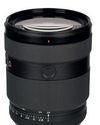
Large-aperture standard zoom, too
SONY has also revealed a new premium standard zoom, the FE 28-70mm F2 GM.
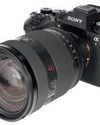
Super-fast, high-res Sony Alpha Ai II
SONY has announced its new professional full-frame flagship camera, the Alpha A1 II.
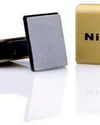
39 awesome accessories
Our round-up of the best accessories we've used and reviewed this year, along with some old favourites. There's something here for every budget, starting from just £7, including tripods, bags, filters and much more

Such a thing as society
This autumn sees the launch of a major new book and exhibition devoted to examining the multiplicities of photography during 1980s Britain. Peter Dench finds out more

Join Club
The sociable Canvey Island Photographic Club is keen to grow its in-person meet ups

Capturing flight
Winners and finalists of Bird Photographer of the Year share their tips for success with Hollie Latham Hucker
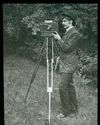
140 years of change
AP has become the world’s oldest surviving consumer photo magazine because we have moved with the times, says Nigel Atherton

Preserving history in platinum
A deep dive into the meticulous art of platinum printing, and the collaboration between the Royal Geographical Society and Salto Ulbeek. Mike Crawford explores how they brought historical photographs to life with enduring beauty and precision
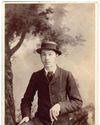
Life in the past lane
What was life like for an amateur photographer in 1884? John Wade takes a trip back in time